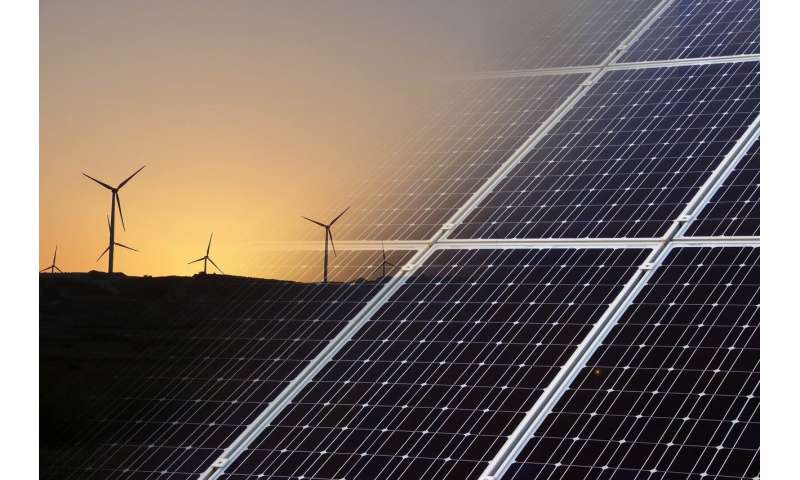#COVID-19 renewable energy response in Africa ‘meager’

“#COVID-19 renewable energy response in Africa ‘meager’”

As of June this year, only three Africa countries, Burkina Faso, Kenya and Nigeria promoted the use of renewable energy to control the challenges COVID-19 triggered in the sector, a study says.
According to the study, COVID-19 has severely hit Africa’s energy sector, stalled the construction of new projects and is thus threatening to reverse the progress made so far in fighting energy poverty in Africa.
African governments have been providing incentives as part of economic stimulus packages to cushion the effect of the COVID-19 pandemic.
“These incentives have taken a toll on the revenue of power utilities, which pose challenges to the security of supply because revenue is needed for operation and maintenance as well as new projects,” says Mark McCarthy Akrofi, a co-author of the study and a researcher at the Institute of Water and Energy Sciences, Pan African University, Algeria.
Ademola Adenle, president and founder of Nigeria-based Africa Sustainability Innovation Academy, tells SciDev.Net that the failure of African governments to enact clear policies for implementing renewable programs is negatively impacting green energy transition.
“With the disruptions caused by the COVID-19, it was necessary to understand its impact in the energy sector to ensure that the pandemic does not scale back the progress made so far in fighting energy poverty in Africa,” Akrofi adds.
Researchers identified energy-related actions focussing on COVID-19 and published by key organizations, such as the World Bank, the International Monetary Fund and the World Health Organization, between May and June.
Akrofi tells SciDev.Net that measures, such as free electricity, implemented by African governments may have knock-on effects on the long-term sustainability of these utilities’ finances.
Most of the economic stimulus plans on energy involved governments providing full cost or suspension of bill payments, with several countries such as Côte d’Ivoire, Gabon, Ghana, Liberia, Mali, Mauritania and Nigeria implementing these strategies.
Akrofi says that power utilities have been negatively impacted by the decline in electricity demand, and many households’ inability to pay for electricity due to the pandemic.
“This study has pointed out an important gap in current government responses to the COVID-19, particularly for the energy sector,” he explains, citing “the failure to specifically outline strategies for the energy sector recovery, especially renewable energy.”
Adenle explains that many African governments have responded through incentives, economic stimulus and policy interventions during COVID-19, but many of these policies have yet to address fundamental challenges facing energy sector.
“In Africa, renewable energy programs such as solar energy is donor-driven and [thus the] limited investment in renewable energy sector suggests that African governments need to overhaul their energy policies,” he explains.
He calls for economic stimulus packages and incentives to target green energy transitions— the replacement of fossil fuels such as coal and natural gas with renewable energy—not only for a post-COVID-19 recovery but also on a long-term basis to develop a reliable energy sector.
Mark McCarthy Akrofi et al. COVID-19 energy sector responses in Africa: A review of preliminary government interventions, Energy Research & Social Science (2020). DOI: 10.1016/j.erss.2020.101681
Provided by
SciDev.Net
Citation:
COVID-19 renewable energy response in Africa ‘meager’ (2020, October 20)
retrieved 20 October 2020
from https://techxplore.com/news/2020-10-covid-renewable-energy-response-africa.html
This document is subject to copyright. Apart from any fair dealing for the purpose of private study or research, no
part may be reproduced without the written permission. The content is provided for information purposes only.
For forums sites go to Forum.BuradaBiliyorum.Com
If you want to read more Like this articles, you can visit our Science category.



